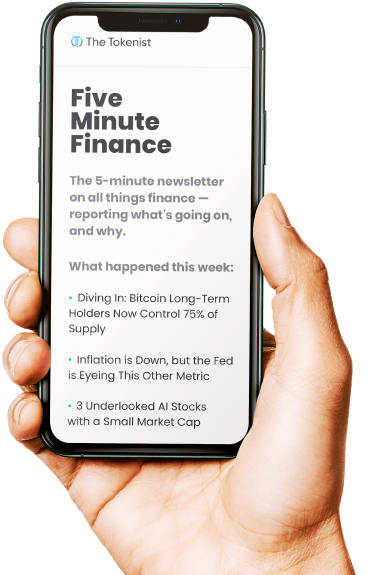
So What If Billionaires Get Stimulus — Means Testing Would Cost More
At least 18 billionaires received stimulus checks intended to aid those that faced unemployment due to Covid lockdowns, according to a report by ProPublica. Although this may appear controversial on the part of the billionaires and the US government, means-testing the stimulus program would likely increase the cost of stimulus programs.
Means Testing Looks At Income, Not Wealth
By claiming large tax deductions, billionaires were able to report their net income as effectively zero, making them technically eligible for the stimulus — despite having billions of dollars in the bank.
After the lockdowns hit and put the global economy on hold, the Trump administration stepped in with stimulus programs to keep cash moving in the economy so businesses could continue to operate. Those who had $75,000 or less in AGI (adjusted gross income) were eligible to receive a $600 stimulus check.

Those over the threshold received a reduced amount, with AGI calculated using IRS reports from 2019. However, AGI does not take into account an individual’s net worth, so some billionaires were technically eligible even though their AUM (assets under management) wealth is much higher than the income threshold.
So why not just look at wealth too? Well, the problem with full means testing is that high net-worth individuals (HNWI) can mask their wealth using tax avoidance practices, making it difficult and costly to determine how much they have. Using means testing is, therefore, more trouble than its worth for the Federal Government to waste time and resources chasing a handful of individuals — especially given the urgency of the time as businesses began to fold last year due to lockdown.
Some have called for universal issuance of checks due to this problem to make sure that people who really need the money can get it, despite a small number of rich people who may receive it too.
Although there is no news on a 4th stimulus check just yet, there is a public push to make it happen. As of press time, Change.org’s petition to give out $2,000 to adults and $1,000 to kids, has almost reached its targeted 3 million signatures.
2019 Data Is Increasingly Unreliable
Another problem with means-testing for stimulus is that it uses data from 2019 — the last “normal” year on record before Covid hit the economy. As we head into 2022 over the next couple of months, this data is becoming increasingly out of date and is much less reliable for giving a “fair” indicator for how workers and business owners are renumerated due to the knock-on-effects of covid.
Effectively, this creates an incentive structure in which seeking additional incomes/jobs is punished, or if working a certain number of hours above a threshold. This may be the reason why the “Great Resignation” phenomenon is accelerating, as more people become disillusioned with work.
Indirectly, President Biden himself understands that deciding on thresholds leads to arbitrary lines. For example, he noted that expensive child care is too much of a burden even for households with up to $300k income.
Interestingly, if one were to set a $300k threshold as the new stimulus check means test, this would be very costly for the government to organize. According to the US Census report, as of September 14th, there were 7.7 million households who made at least $250k during 2019. If we go by Change.org’s petition for a $2k stimulus check, the impact on the budget would be $15.4 billion – less than one percent of the proposed bill’s cost.
If one zooms out even further and compares it to the $2.3 trillion spent on Afghanistan, $15.4 billion would account for 0.6% of that. This just goes to show that setting proper context and priorities can make all the difference when it comes to public perception of government spending.
Join our Telegram group and never miss a breaking digital asset story.
Senator Calls For “Billionaire Tax”
In response to the billionaires receiving checks, Senator Ron Wyden, the Chairman of the Senate Finance Committee, acknowledged the “woefully ill-equipped” US tax code and called for a new tax levy on billionaires.
Whether billionaires should be taxed more or not is arguably a separate conversation, but is the quick explanation for the root causes. Determining earnings as “income” can also lead to problems for the taxman, leading to some calling for greater taxes on wealth as well.
Should billionaires pay more tax? Should the government use means testing for the sake of fairness despite the costs? Let us know in the comments below.




